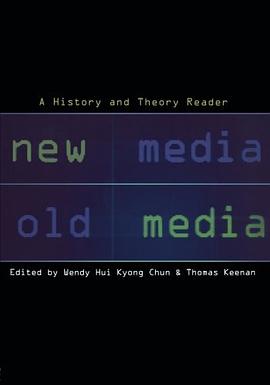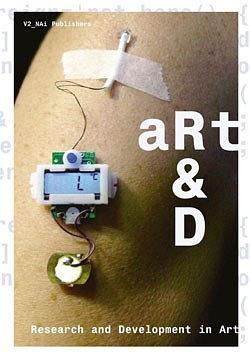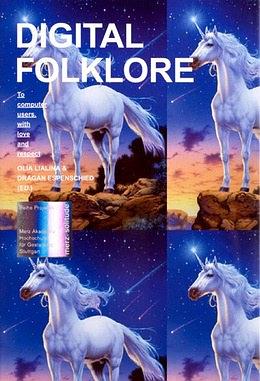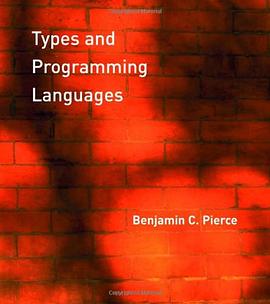

具體描述
Why do we share so much about our lives on social media when we often have little idea who might be reading or viewing? David R. Brake examines the causes and consequences of moving towards a radically open society.
著者簡介
圖書目錄
Acknowledgements viii
1. Introduction 1
Why focus on the online? 7
Why do we reveal what we do online? 8
Macro-level influences 8
Micro-level influences 11
What happens next? 13
2. What Is Risky about Online Self-Disclosure and Who Is at Risk? 15
Early hopes 15
Birth of the `online predator' 17
Risks to children from online self-disclosure 18
Sexual predators 18
Cyberbullying 22
The `digital native' 24
What about the `rest of us'? 26
Risks to adults from online self-disclosure 27
Criminal exploitation 27
Stalking and cyberstalking 29
Employment harm 31
Commercial exploitation 33
Government surveillance 34
Interpersonal harms 36
A social media moral panic? 41
3. How and Why Social Media Interaction Is Different 42
Social media as symbolic interaction 42
Goffman and interpersonal interaction 43
Using Goffman to examine mediated communication 49
CMC theories 55
Wider contexts of social media use 64
Legal 64
Market 5
Norms 67
Code 67
Clashes, compromises and co-creation 71
A conceptual framework for studying risky social media self-disclosure 72
Macro-level influences 72
Micro-level influences 73
4. Imagining the Reader 75
The physical context of online sharing 77
Digital literacy and audience perception 80
Social media services and what they reveal to users about audiences 81
LinkedIn 82
Twitter 82
Tumblr 85
Facebook 85
Categories of reader knowledge 89
Case study: How much do personal webloggers know and seek to know about their readers? 90
Case study: How do personal webloggers picture their readers? 92
The assumption of a sympathetic reader and its consequences 98
Conclusion 99
5. Time and Memory in Social Media 101
Social media memory 102
Accessibility 103
Durability 103
Comprehensiveness 104
Inequality 105
Evolution 107
Social media services and primary and secondary reception 108
Snapchat 109
Twitter 110
Facebook 111
Tumblr 112
Blogging and time: Debates in the literature 113
Blogging and time: Evidence from the field 116
Changed relation to readers 117
Changed motivations 118
Changed circumstances 119
The place of archiving in blogging practice 121
Conclusion 127
6. Towards a Radically Open Society 131
How did we get here? A brief history of the social media industry 132
From the `new communalism' to the rhetoric of `sharing' 134
Technological biases 139
Commercial imperatives 141
Network effects 143
Technological trajectories 145
Conclusion 147
7. Conclusion 149
Overview 149
The benefits of social media use 151
Striking the right balance 153
Education 155
The role of the social media industry 156
Need for research 159
Where do I stand? 159
Need for wider debate 160
Methodological Appendix 162
Notes 164
Bibliography 168
Index 192
· · · · · · (收起)
1. Introduction 1
Why focus on the online? 7
Why do we reveal what we do online? 8
Macro-level influences 8
Micro-level influences 11
What happens next? 13
2. What Is Risky about Online Self-Disclosure and Who Is at Risk? 15
Early hopes 15
Birth of the `online predator' 17
Risks to children from online self-disclosure 18
Sexual predators 18
Cyberbullying 22
The `digital native' 24
What about the `rest of us'? 26
Risks to adults from online self-disclosure 27
Criminal exploitation 27
Stalking and cyberstalking 29
Employment harm 31
Commercial exploitation 33
Government surveillance 34
Interpersonal harms 36
A social media moral panic? 41
3. How and Why Social Media Interaction Is Different 42
Social media as symbolic interaction 42
Goffman and interpersonal interaction 43
Using Goffman to examine mediated communication 49
CMC theories 55
Wider contexts of social media use 64
Legal 64
Market 5
Norms 67
Code 67
Clashes, compromises and co-creation 71
A conceptual framework for studying risky social media self-disclosure 72
Macro-level influences 72
Micro-level influences 73
4. Imagining the Reader 75
The physical context of online sharing 77
Digital literacy and audience perception 80
Social media services and what they reveal to users about audiences 81
LinkedIn 82
Twitter 82
Tumblr 85
Facebook 85
Categories of reader knowledge 89
Case study: How much do personal webloggers know and seek to know about their readers? 90
Case study: How do personal webloggers picture their readers? 92
The assumption of a sympathetic reader and its consequences 98
Conclusion 99
5. Time and Memory in Social Media 101
Social media memory 102
Accessibility 103
Durability 103
Comprehensiveness 104
Inequality 105
Evolution 107
Social media services and primary and secondary reception 108
Snapchat 109
Twitter 110
Facebook 111
Tumblr 112
Blogging and time: Debates in the literature 113
Blogging and time: Evidence from the field 116
Changed relation to readers 117
Changed motivations 118
Changed circumstances 119
The place of archiving in blogging practice 121
Conclusion 127
6. Towards a Radically Open Society 131
How did we get here? A brief history of the social media industry 132
From the `new communalism' to the rhetoric of `sharing' 134
Technological biases 139
Commercial imperatives 141
Network effects 143
Technological trajectories 145
Conclusion 147
7. Conclusion 149
Overview 149
The benefits of social media use 151
Striking the right balance 153
Education 155
The role of the social media industry 156
Need for research 159
Where do I stand? 159
Need for wider debate 160
Methodological Appendix 162
Notes 164
Bibliography 168
Index 192
· · · · · · (收起)
讀後感
評分
評分
評分
評分
評分
用戶評價
评分
评分
评分
评分
评分
相關圖書
本站所有內容均為互聯網搜索引擎提供的公開搜索信息,本站不存儲任何數據與內容,任何內容與數據均與本站無關,如有需要請聯繫相關搜索引擎包括但不限於百度,google,bing,sogou 等
© 2025 book.quotespace.org All Rights Reserved. 小美書屋 版权所有




















